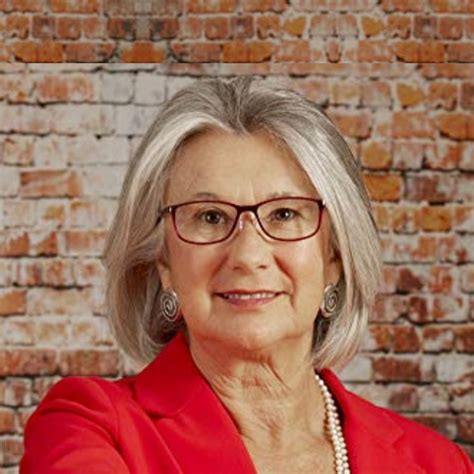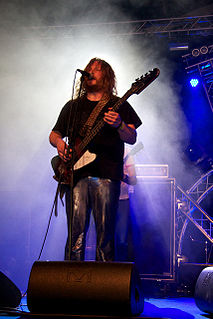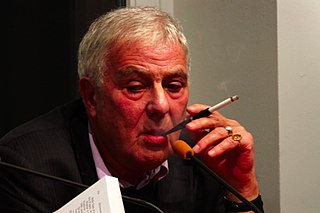A Quote by Andrzej Wajda
When a film is created, it is created in a language, which is not only about words, but also the way that very language encodes our perception of the world, our understanding of it.
Quote Topics
Related Quotes
Being a slow reader would normally be a deficiency; I found a way to make it an asset. I began to sound words and see all those qualities - in a way it made words more precious to me. Since so much of what happens in the world between human beings has to do with the inconsideration of language, with the imprecision of language, with language leaving our mouths unmediated, one thing which was sensuous and visceral led to, in the use of language, a moral gesture. It was about trying to use language to both exemplify and articulate what good is.
There is something false in this search for a purely feminine writing style. Language, such as it is, is inherited from a masculine society, and it contains many male prejudices. We must rid language of all that. Still, a language is not something created artificially; the proletariat can't use a different language from the bourgeoisie, even if they use it differently, even if from time to time they invent something, technical words or even a kind of worker's slang, which can be very beautiful and very rich. Women can do that as well, enrich their language, clean it up.
We must embrace our differences, even celebrate our diversity. We must glory in the fact that God created each of us as unique human beings. God created us different, but God did not create us for separation. God created us different that we might recognize our need for one another. We must reverence our uniqueness, reverence everything that makes us what we are: our language, our culture, our religious tradition.
I am very interested in writers from the Francophone world. I like Kamel Daoud a lot, for example. In "The Meursault Investigation" and "Zabor," he shows a passion for the French language, a very special way of writing that belongs to those who live on the other side of the Mediterranean Sea. It is language that connects us. It allows people there to cling to our history, our culture and sometimes also our values.
We believe we can also show that words do not have exactly the same psychic "weight" depending on whether they belong to the language of reverie or to the language of daylight life-to rested language or language under surveillance-to the language of natural poetry or to the language hammered out by authoritarian prosodies.
It has not been definitively proved that the language of words is the best possible language. And it seems that on the stage, which is above all a space to fill and a place where something happens, the language of words may have to give way before a language of signs whose objective aspect is the one that has the most immediate impact upon us.
I sing only in Meronian - my own language - but there are also elements of English and Finnish languages in our songs. When we use the spiritual Meronian language, the word 'international' doesn't do justice to our band. This kind of psychic language's means of communication can reach galaxies beyond our planet, not to mention the other living and inanimate entities of our own planet.
Dare I speak ,to oppressed and opressor in the same voice? Dare I speak to you in a language that will move beyond the boundaries of domination- a language, that will not bind you, fence you in, or hold you? Language is also a place of struggle. The oppressed struggle in language to recover ourselves, to reconcile, to reunite, to renew. Our words are not without meaning, they are an action, a resistance. Language is also a place of struggle.
The world is mental in some way that we do not yet understand, but that which we're edging toward understanding. And the world is made of language. I can't say that enough. Whenever we get into these discussions about reality, or effects in space and time, we are operating outside this assumption that the world is made of language.
When we form heart-centered beliefs within our bodies, in the language of physics we're creating the electrical and magnetic expression of them as waves of energy, which aren't confined to our hearts or limited by the physical barrier of our skin and bones. So clearly we're speaking to the world around us in each moment of every day through a language that has no words: the belief-waves of our hearts.






































